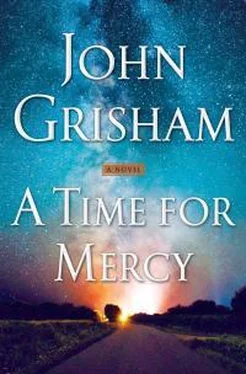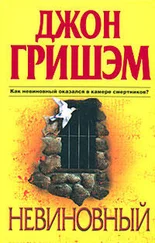Mr. Cavanaugh was taken aback, paused just long enough for Jake to free his arm, and managed to ask, “Oh, you haven’t heard?”
“Heard what?”
The choir erupted in a call to worship and it was time to be seated. Hanna appeared and wedged herself between her parents, and not for the first time Jake smiled at her and wondered how long these days would last. She would soon start bugging them to let her sit with her friends during “Big Church,” and then not long after that boys would enter the picture. Don’t look for trouble, Jake reminded himself. Just enjoy the moment.
The moments, though, were difficult to enjoy. Not long after the preliminary announcements and the first hymn, Dr. Eli Proctor assumed the pulpit and delivered the somber news that everyone already knew. With a bit too much drama, at least in Jake’s opinion, the pastor told of the tragic loss of Officer Stuart Kofer as if in some way it directly affected him. It was an irritating habit, one that Jake occasionally mentioned to Carla, though she had no patience for his complaints. Proctor could almost cry when describing typhoons in the South Pacific or famines in Africa, disasters that no doubt deserved the prayers of all Christians, but were on the other side of the world. The pastor’s only connection was the cable news shared by the rest of the country. He managed, though, to be more profoundly touched.
He prayed long and hard for justice and healing, but was a bit light on mercy.
The youth choir sang two hymns and the service switched gears. When the sermon started, at precisely 11:32 by Jake’s watch, he tried gamely to absorb the opening paragraph but was soon lost in the near dizzying scenarios that might be played out in the days to come.
He would call Noose after lunch, that much was certain. He had great respect and admiration for his judge, and this was strengthened by the fact that Noose felt the same way about him. As a young lawyer, Noose had gotten himself involved in politics and gone astray. As a state senator, he had narrowly missed an indictment and was humiliated at reelection time. He once told Jake that he had wasted his formative years as a young lawyer and had never honed his courtroom skills. With great pride he had watched Jake grow up in the courtroom, and still relished his not-guilty verdict in the Hailey trial.
Jake knew it would be next to impossible to say no to the Honorable Omar Noose.
And if he said yes and agreed to represent the kid? That kid sitting over there in the jail, in the juvie cell that Jake had visited many times? What would these fine folks, these devout Presbyterians, think of him? How many of them had ever seen the inside of a jail? How many had an inkling of how the system worked?
And, crucially, how many of these fine law-abiding citizens believed every defendant had the right to a fair trial? And the word “fair” was supposed to include the assistance of a good lawyer.
The common question was: How can you represent a man who’s guilty of a serious crime?
His common response was: If your father or son was charged with a serious crime, would you want an aggressive lawyer or a pushover?
Typically, and with no small measure of frustration, he was again busying himself with thoughts about what others might think. A serious flaw for any lawyer, at least according to the great Lucien Wilbanks, a man who had never worried about the concerns of others.
When Jake finished law school and found himself working in the Wilbanks law firm under Lucien’s tutelage, his boss had proclaimed such gems as: “Those pricks down at the Rotary Club and the church and the coffee shop will not make you a lawyer and will not make you a dime.” And, “To be a real lawyer, first you grow a thick skin, and second you tell everybody but your clients to go to hell.” And, “A real lawyer is not afraid of unpopular cases.”
Such was the atmosphere of Jake’s apprenticeship. Before he was disbarred for all manner of bad behavior, Lucien was a successful lawyer who made a name for himself representing the underdogs—minorities, unions, poor school districts, abandoned kids, the homeless. Because of his brazenness, though, and his self-awareness issues, he often failed to connect with juries.
Jack pinched himself and wondered why he was thinking of Lucien during the sermon.
Because if he still had a license to practice law, Lucien would be calling Noose and demanding that he, Lucien, be appointed to represent the kid. And since all other locals were running from the case, Noose would appoint Lucien and everyone would be pleased.
“Take the damned case, Jake!” he could hear him yelling.
“Every person is entitled to a lawyer!”
“You can’t always pick your clients!”
Carla realized he was drifting and shot him a look. He smiled and patted Hanna’s knee, but she quickly shoved his hand away. After all, she was nine years old.
—
IN THE PARLANCE of the Bible Belt, those within the faith used many words and terms to describe those outside of it. On the harsher end of the spectrum, the “lost” were referred to as heathen, unsaved, unclean, hell-bound, and just old-fashioned sinners. More polite Christians called them nonbelievers, future saints, backsliders, or—the favorite—unchurched.
Whatever the term, it was safe to say that the Kofers had been unchurched for decades. Some distant cousins were members of congregations, but as a rule they as a clan had avoided involvement with the Word. They were not bad people, they had just never felt the need to pursue the holier way. They had had their chances. Dozens of well-meaning country preachers had tried to reach them, to no avail. And it was not unusual for traveling evangelists to target them and even call them by name in fiery sermons. They had often been at the top of prayer lists and subjected to door-to-door solicitations. Through it all, they had resisted all efforts to follow the Lord and were quite content to be left alone.
On that somber morning, though, they needed the embrace and sympathy of their neighbors. They needed the usual outpouring of love and compassion of those closer to God, and it wasn’t there. Instead, they huddled en masse at Earl’s home and tried to cope with the unimaginable. The women sat and cried with Janet, Stu’s mother, while the men stayed outside on the porch and under the trees, smoking, cursing quietly, and talking of revenge.
—
THE GOOD SHEPHERD Bible Church met in a picturesque white-frame building with a tall steeple and a manicured cemetery behind it. The building was historic, 160 years old, and had been built by Methodists, who handed it down to some Baptists, who disbanded and left it vacant for thirty years. The church’s founders had been an independent group, not fond of denominational labels and the rampant fundamentalism and political leanings that had swept through the South in the 1970s. The church, with about a hundred members, had bought the building out of foreclosure, renovated it with great care, and welcomed more enlightened souls who were weary of the prevailing dogma. Women were elected as elders, a radical notion that gave rise to the whispered claim that Good Shepherd was a “cult.” Blacks and all minorities were welcome, though they worshipped elsewhere, for other reasons.
On that Sunday morning, attendance was up slightly as the members met to learn the latest details of the killing. Once Pastor Charles McGarry let it be known that the accused, young Drew Gamble, was practically one of them, and that his mother, Josie, was in the hospital, badly injured after a brutal beating, the church circled its wagons and embraced the family. Kiera, still in the jeans and sneakers she wore during the terrible ordeal of the night before, sat through Sunday school in a small classroom with other teenage girls and tried to comprehend where she was. Her mother was in the hospital and her brother was in the jail, and she had already been told that she could not go back to the house to gather her things. She tried not to cry but couldn’t help herself. During the worship hour she sat on the front pew with the pastor’s wife on one side, holding her arm, and a girl she knew from school close on the other. She managed to stop the tears but she couldn’t think clearly. She stood for the hymns, old songs she had never heard before, and she closed her eyes tight and tried to pray along with Pastor Charles. She listened to his sermon but heard nothing. She had not eaten in hours but had declined food. She could not imagine going to school tomorrow and decided she would not be forced to do so.
Читать дальше












![Джон Гришэм - Апелляция [Фейк]](/books/403002/dzhon-grishem-apellyaciya-fejk-thumb.webp)